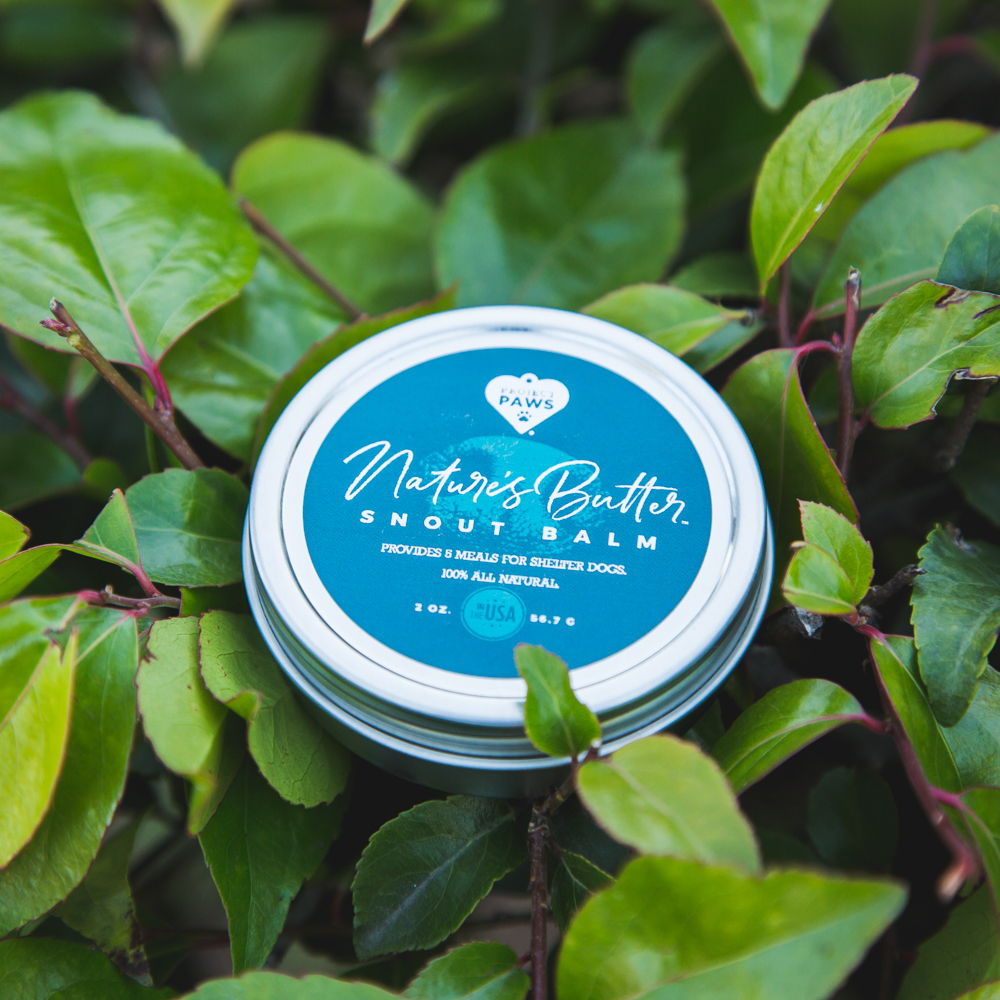You have likely heard that a wet nose equals a healthy dog. In reality, the canine nose alternates between wet and dry in response to a variety of factors. Problems arise when the nose becomes so dry that it cracks or flakes.
Overly dry noses are uncomfortable and can affect the way your dog experiences the world.

Scent is arguably a dog’s most important sense. It’s how they first recognize the ones they love and explore the environment around them. Alexandra Horowitz, author of Inside of a Dog: What Dogs See, Smell, and Know, goes so far as to say dogs “see with their noses.”
But in order for the incredible sensory apparatus within the canine nose to operate at full capacity, the external skin must be moist and spongy.
Brachycephalic dog breeds like Pugs are especially prone to dry, cracked noses due to the anatomy of their heads. Their noses sit high on their stubby muzzles, making it difficult to reach them with their tongues.
Luckily, protecting your Pug from the discomfort and decreased sensory input of a dry nose can be achieved in two simple steps:
1. Pinpoint the Cause(s)

- Weather: You may notice that your dog’s nose is affected by extreme heat or cold, or that sun exposure contributes to its dryness. Indoor heating in the winter can also be a culprit.
- Allergies: Pugs are often prone to seasonal, contact and food allergies. You may want to avoid plastic bowls and toys and consult with your vet about your dog’s particular sensitivities.
- Dehydration: Make sure your dog drinks plenty of fresh water, especially in hot, humid weather. If he or she is drinking or urinating excessively, see your vet to rule out diabetes or problems with the kidneys which can cause dehydration.
- Medical Conditions: There are several medical conditions that can contribute to a dog’s dry nose including neurological issues that cause excessive licking and autoimmune disorders. See your vet regularly and report any concerning symptoms. He or she may recommend lab work to rule out a serious problem.
2. Apply A Soothing Nose Balm
Barring any underlying medical condition, you can begin to heal your dog’s crusty nose with a soothing product like Nature’s Butter Nose Balm. Hand-mixed on a family farm in Minnesota, this cruelty-free balm is composed of a mixture of Shea Butter, Olive Oil, Almond Oil, Coconut Oil, Beeswax, Avocado Oil, Coca Seed Butter and Castor Oil.
The different oils and butters absorb into the skin at varying rates, ensuring maximum, long-lasting effects. First, the lighter oils soak in for fast results. Next, the medium weight oils add a deeper layer of moisture. And finally, the heavy-duty butters melt into your dog’s nose, bringing extra relief.
The ingredients in Nature’s Butter Snout Balm are non-toxic, so they won’t harm your pup if accidentally ingested. Best of all, this product, like all iHeartDogs merchandise, gives back to shelter dogs in need. Every tin of snout balm, provides five healthy meals to pups awaiting their forever families in shelters across the country.
Our customers have given Nature’s Butter Snout Balm a five star rating. Check out what they had to say:
Wonderful product, it really does work. In 4 days it smoothed my little guys nose. So happy that there’s a product that does what it said it would. This is staying on my great product list. Thank youVery excellent product & Dooley gives it a 4 paws up solute!! Thanks for your wonderful product!!
Love this and my dogs nose is softer and the cracks all healed!
Learn more and get yours here!
These statements have not been evaluated by the Food and Drug Administration. This product is not intended to diagnose, treat, cure, or prevent any disease. The information on this website is not intended to replace a one-on-one relationship with a qualified health care professional.


